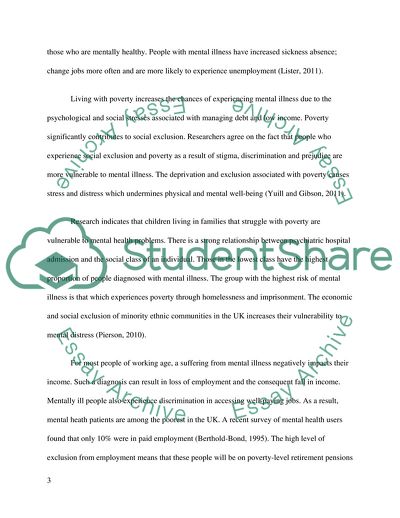Cite this document
(Sociological Explanation of Poverty and Social Exclusion of the Mental Essay, n.d.)
Sociological Explanation of Poverty and Social Exclusion of the Mental Essay. https://studentshare.org/sociology/1801568-show-how-appropriate-sociological-theories-can-be-applied-to-understand-the-poverty-and-social-exclusion-of-a-social-group-of-your-choice
Sociological Explanation of Poverty and Social Exclusion of the Mental Essay. https://studentshare.org/sociology/1801568-show-how-appropriate-sociological-theories-can-be-applied-to-understand-the-poverty-and-social-exclusion-of-a-social-group-of-your-choice
(Sociological Explanation of Poverty and Social Exclusion of the Mental Essay)
Sociological Explanation of Poverty and Social Exclusion of the Mental Essay. https://studentshare.org/sociology/1801568-show-how-appropriate-sociological-theories-can-be-applied-to-understand-the-poverty-and-social-exclusion-of-a-social-group-of-your-choice.
Sociological Explanation of Poverty and Social Exclusion of the Mental Essay. https://studentshare.org/sociology/1801568-show-how-appropriate-sociological-theories-can-be-applied-to-understand-the-poverty-and-social-exclusion-of-a-social-group-of-your-choice.
“Sociological Explanation of Poverty and Social Exclusion of the Mental Essay”. https://studentshare.org/sociology/1801568-show-how-appropriate-sociological-theories-can-be-applied-to-understand-the-poverty-and-social-exclusion-of-a-social-group-of-your-choice.


